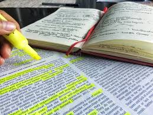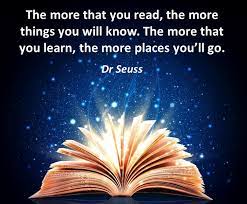
Inspired by our mission to strive for excellence in everything we do, our key Teaching and Learning principles ensure our pupils thrive and succeed. Please click on these key principles to find out more information on how we do this.
At Brownedge St Mary’s we believe that every child has the right to a high quality and inspirational education. We believe that assessment lies at the heart of outstanding pedagogy, empowering pupils to reach their potential. At Brownedge, we have developed progression models at faculty level, where teachers have a clear and accurate understanding of how pupils make progress in their subject. Using a progression model, teachers have analysed and sequenced curriculum content in terms of knowledge and skills to be learned based on age related progression. The curriculum, schemes of work and lesson plans are built on these progression models. These progression models must take into account the context of their cohorts plus any subject specific gaps in learning on entry.
We believe that assessment supports learning through:
- Identifying what each pupil is capable of (cognitive and academic potential) so that pupils have challenging targets
- Identifying the knowledge and skills that each pupil is already competent and successful at
- Evaluating pupils’ understanding of key concepts, knowledge and skills so to identify gaps in learning or misconceptions and plan for next steps in teaching and learning. Assessment will include effective formative and summative assessment that provides robust evidence of learning (see examples below.) This will then inform lesson planning to ensure that activities challenge pupils and promote learning.
- Providing precise, meaningful and timely information through effective feedback on learning so that pupils understand their success in developing their knowledge, skills and understanding and know what they need to do next in order to improve
- Identifying pupils whose gaps in knowledge which require intervention beyond what is offered ordinarily by the class teacher
Summative assessment is Assessment OF Learning. It is used mainly to measure performance and clearly identifies a standard of pupil attainment. This type of assessment takes place at the end of a unit of work/period of learning and at the end of a year. The assessment measures pupils` knowledge, understanding and skills for topics studied. Pupils are given opportunities to revise in preparation for this type of assessment.
All assessments are clearly related to relevant performance indicators, dependent on year group and key stage. Examples of summative assessment include:
- Interim assessments (mid topic tests)
- External examinations
- End of topic/unit tests
- Internal school examinations
- Standardised tests
Formative assessment is Assessment FOR Learning. It is ongoing and provides evidence of and for progression in learning. It supports learning through identifying difficulties, providing feedback and diagnosing future learning priorities. Formative assessment involves teachers using a variety of methods to diagnose specific areas to improve, and support pupils, and classes, in doing so. Formative dialogue is comment-based and occurs throughout the learning cycle. Examples of formative assessment include:
- Classwork activities
- Questioning
- Home Learning
- Oral discussion
- Short recall testing
- Targeted marking

There has been a significant amount of research around the power of long term memory through retrieval practice in recent years. Retrieval practice refers to the act of recalling information from memory without (or with minimal) support. It forms an integral part of the learning process as it helps pupils to review what they know and can easily retrieve from memory.
The learning and retrieval process starts with encoding (acquiring information / attention in lessons). Information is then committed to memory or storage (short-term or working memory, which is limited in size). From here much of this knowledge is likely to be forgotten (which is an important part of the process). Retrieval practice is then used to help pupils to recall what was previously known or learned. Retrieval practice can take many forms, depending upon need. Regular retrieval practice will lead to increased confidence (less anxiety?), stronger outcomes and results over time.
Retrieval practice is one of the strongest and sharpest tools in our teaching and learning toolkit. At Brownedge St Mary's we teach pupils how to remember information and recall it when required through teaching pupils specific, targeted revision strategies and then assessing learning through low stakes quizzing, use of online learning apps and formative assessment.
Practising remembering supports effective learning. “The more we know, the more we can know. The more we know, the more we can understand. The more often we retrieve knowledge from our vast complex stores of memories in different ways – all those facts, words, ideas, concepts and experiences – the stronger those memories become and the more fluently we can recall them. The more fluent we are in recalling our knowledge, the better placed we are to explore new knowledge, to solve new problems, to engage in debate, to respond to challenges, to understand what we read. The more we know, the more creative we can be.” Tom Sherrington.

In all subjects, extended answers are a key feature to success. Writing is challenging for teachers and pupils alike. Writing tasks usually carry a lot of marks in summative assessments including GCSE examination questions and so it is essential that pupils can recall and marshall large amounts of information, communicate with accuracy and structure ideas logically.
At Brownedge St Mary's we recognise that complex writing tasks, including essays and extended answers, need to be broken down to help pupils succeed across the curriculum. This forms part of our scaffolded activities where we support children of all starting points whilst allowing them to become more independent as they emerge from being novices to mastery.
According to the EEF "writing is demanding because it requires students to combine three processes". Theses are composition (generating ideas and translating them into words), transcription (physically type or write) and executive functions (enable pupils to make plans, motivate themselves and review and redraft texts). At Brownedge St Mary's we break these processes to ensure pupils learn pedagogical strategies to write effectively, whilst challenging them to produce their best and become scholars within each subject area. This involves providing word-level, sentence-level and whole text-level instruction, specific teaching of Tier 2 and 3 vocabulary, explicit planning strategies and structures and monitor and review of work.
One of the best strategies a teacher can adopt in writing instruction is live modelling through talk for writing and producing written answers for the pupils to see the thought processes that sit behind a model answer developing writing proficiency for all pupils.

'Every teacher is a teacher of Literacy'
There is no argument to the fact that literacy is essential for learning and success. Pupils are like sponges, they learn thousands of words a year. Literacy is key to academic success across all subjects and should be grounded in each subject area. School is to prepare us for the ‘big wide world’ and this includes big words and an expected level of literacy. “Young people who leave school without good literacy skills are held back at every stage of life. Their outcomes are poorer on almost every measure, from health and wellbeing, to employment and finance.” (Sir Kevan Collins, EEF)
How can we best enhance and enrich pupils’ literacy?
Explicit teaching of literacy – explicitly teaching pupils about words allows pupils to learn key words and structure. It can boost pupil’s literacy as they can see it in use, understand word use and structure and actively be encouraged to improve their use of language. Teaching pupils about writing structure shows them the standards expected, teaching pupils what words to use and how to use them encourages vocabulary development. Showcase tier 2 and 3 vocabulary explicitly through etymology, morphology, synonyms and definitions and then live model or use writing frames to identify to pupils how to express themselves.
- Say the word carefully
- Give a friendly definition
- Give examples of use and ask students for examples
- Minimum words to include
- Sentence starters
- Glossaries
- Vital vocab lists and Knowledge organisers
Implicit teaching of literacy – implicitly teaching literacy allows pupils to absorb key words and structure. It means to show pupils how to use language as if it is always to be found in your subject. Using the vocabulary expected in everyday teaching and resources tells pupils and subtly shows pupils the essential to be connected with your subject or topics. Using Tier 2 and 3 words in the classroom as a norm, elaborating explanations and modelling structure for example, alternatively, and so because…
- Reading materials carefully chosen
- Glossaries
- Teacher talk
- Conversational expectations
- Synonyms
- Carefully selected
- Read and reflect
Cultivating ‘word consciousness’ – Word consciousness allows pupils to become aware of the key words and structure they are using. It increases an awareness of literacy, its use, expectations and understanding. Develops a love of language and continual curiosity about what words mean, where they come from, how they are related and how to accurately use them. It also allows pupils to understand unknown words as they recognise parts or break down the meanings gifting pupils with independent word learning strategies.
- Etymology online and word hippo
- Class discussions and breaking up of words
- Interactive word walls
- Word of the week
- Minimum inclusion
- Word games
- Multiple opportunities to hear see and use new words

'Reading is like breathing in and writing is like breathing out'
A major part of our work at Brownedge St Mary's in developing literacy, is related to utilising the power of reading, in and out of the classroom. A strong focus on reading skills and development enables teachers to teach their subject more effectively as well as providing effective strategies to support pupils not only access the curriculum but thrive academically and in learning for life.
To comprehend subject resources effectively pupils need to enage with and understand the information they are reading, draw upon what they already know and make new inferences to learn more. Effective readers of informational texts draw upon prior knowledge as well as their awareness of subject specific vocabulary. Reading for learning strategies support pupil engagement with information which improves comprehension. It encourages pupils to predict, question, summarise, contextualise and source content.
Reading strategies are carefully applied and adapted in different subjects and at Brownedge St Mary's we adopt a plethora of these strategies, but reading is a crucial part of our Teaching and Learning principles across ALL subjects.
Reading for pleasure is actively encouraged across school in ALL year groups. There is a wealth of research and evidence to link reading with academic attainment. In addition to improving concentration, imagination and creativity it has been proven reading also improves literacy, social skills and health and wellbeing. It deepens and embeds pupils' Cultural Capital and general knowledge.
Avid readers who have a real enjoyment for reading have higher cognitive scores, higher engagement in school, positive communication skills, higher levels of motivation and evidence suggests, higher scores in mathematics, logical problem-solving and increased empathy.

'A teachers' beliefs about their students and what they can achieve have a substantial impact on students' learning and progress.'
Growing a strong classroom culture is the aim of every teacher. In order for this culture to mature and bear fruit, it must be rooted in challenge and expectations. Teachers with high expectation believe that students will make accelerated, rather than normal, progress, and that pupils will move above their current level of performance. They don’t believe in limiting progress or placing a glass ceiling in the classroom. When students are given more advanced opportunities to learn, they can make more progress. Ability is a fluid concept: it can be developed through challenge, opportunity and self-belief. This is the foundation of our Growth Mindset philosophy.
Teachers with high expectations establish an academically challenging culture for all. They teach to the top and scaffold down as appropriate. They do NOT assume pupils can’t, or don’t want to, complete a task, or access material. They run a no opt out classroom where pupils at least have a go. Addressing the needs of more able pupils will raise achievement for a much wider group of pupils. Think the Pygmalion effect. By providing for more able pupils in the class you are not about labelling them but creating a curriculum and learning opportunities which allow all pupils to flourish, if your expectations are the same for all.
In a growth mindset, people believe that their most basic abilities can be developed through determination, resilience and perseverance - HARD WORK. Brains and talent are just the starting point. “In mindset terms, this is an important shift. Scaffolding can be taken down… it’s temporary support. In practical terms, it means you set the same learning objectives for everyone within the curriculum area in hand and plan different ways to support students to get there. “(Tom Sherrington)
We believe that ability is a fluid concept: it can be developed through challenge, opportunity and self-belief. This is the foundation of our Growth Mindset philosophy. As a school we have done a lot of research in this area including the DFE document on Wasted Years. We have also spent time training staff on how to support the full spectrum of abilities in their classes and have worked alongside other local schools in this area. Local subject networks and subject specific training have equipped our teachers with the expertise to secure excellent progress in their subjects, through their understanding of effective pedagogy and outstanding subject knowledge.
To ensure all pupils make progress and all different abilities are catered for, teachers have a plethora of information about the children in their class to inform their planning. This ranges from SEN information to reading ages, from Behaviour for Learning points to Able and Ambitious information. This knowledge is then used to inform teaching to ensure all pupils reach their potential. Staff plan around all of the abilities and needs in their classrooms and support, challenge or scaffold work as required.
It is NOT about what set you are in; but what MINDSET you are in

The Mission Statement of Brownedge St Mary’s expresses our intention to ensure that all pupils are given the opportunity to fulfil their potential using their unique talents gifted to them by God. We are committed to providing opportunities that allow all pupils to develop as independent, confident and successful learners with high aspirations who enjoy learning and make good progress. Through our Mission, we will develop pupils’ personal and moral values based on our Catholic ethos, teaching them respect for other cultures, religions and ways of life (including British Values) and ensuring that all know how to make a constructive contribution to the local, national and worldwide community. Our curriculum will develop the spiritual life of all pupils and through prayer and reflection they will become open to appreciating their uniqueness in the eyes of God.
Our curriculum intent is to be responsive to our local context and the profile of our cohort entry. Building on knowledge of pupils’ prior learning, we will ensure that pupils from day one will be challenged through new and engaging learning which matches their varied needs and aspirations of all learners. We will ensure that our broad and balanced curriculum, delivered by specialist staff, equips our learners to transition into appropriate progression routes so that they lead successful and fulfilling lives.
We will plan and sequence our learning such that all groups will make good progress. Challenging concepts will be revisited enough times for all pupils to make sustained gains in new knowledge. We will equip learners with the technical and subject-specific vocabulary to articulate precisely their learning, orally and in extended writing. We expect all learners to appreciate the value of reading widely for pleasure. All learners will be engaged in an ambitious curriculum pathway, whether it be traditional EBacc, technical or vocational.
Our curriculum will promote resilience and determination as key qualities for success and will demonstrate that challenge and ambition develop a healthy mindset equipping them for life and all its diversity.
Outside the classroom we will provide a diverse experienced curriculum, rich in opportunities to develop knowledge and skills including collaborative learning, leadership, problem solving, enterprise, work related learning, acts of service and specialised interests.
